Looking for allspice substitutes? You're not alone. Whether you're baking, cooking, or making savory dishes, we've got you covered with the top 6 allspice alternatives, based on professional chef recommendations from the Culinary Institute of America. Here's exactly what to use and how much.
Table of Contents
- What Are Allspice Berries?
- Top 6 Alternatives to Allspice Berries
- Comparison Table
- Buying Guide for Allspice Alternatives
- How to Use These Alternatives Like a Pro
- Frequently Asked Questions
- Conclusion
What Are Allspice Berries?
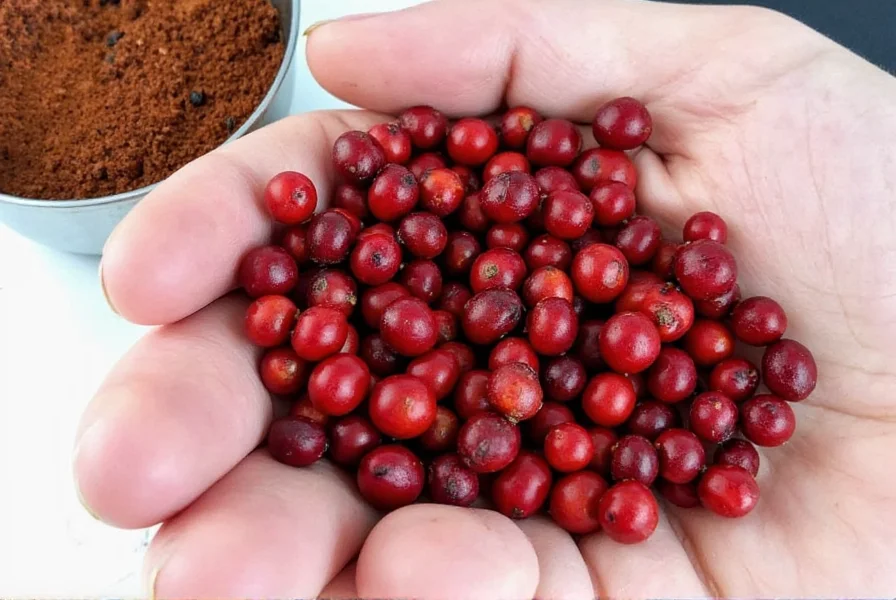
Allspice berries are the dried unripe fruit of the Pimenta dioica plant, native to Central America and the Caribbean. According to the Culinary Institute of America, their flavor profile resembles a mix of cinnamon, nutmeg, and cloves with a hint of pepper. They're commonly used in both sweet and savory dishes, especially in Jamaican jerk seasoning, Middle Eastern stews, and traditional pumpkin pies.
However, due to their complex flavor, many cooks may not have allspice on hand—or might want to experiment with alternatives for health, availability, or personal taste reasons.
Top 6 Alternatives to Allspice Berries
Based on professional chef recommendations from the Culinary Institute of America and experienced home cooks, here are the top 6 allspice substitutes that can mimic allspice's warm, earthy, slightly sweet flavor. Some of these you might already have sitting in your kitchen cabinet!
1. Cinnamon
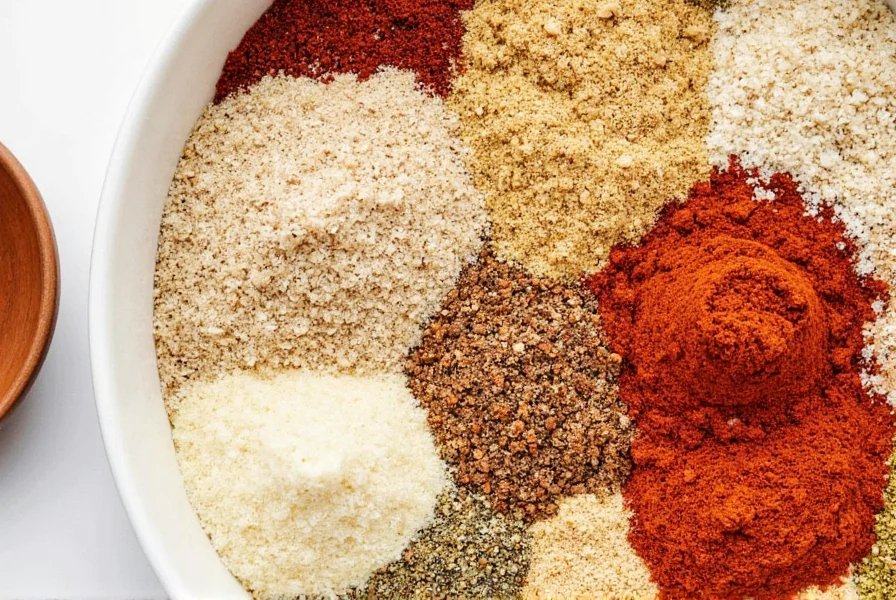
Cinnamon brings warmth and sweetness, making it a great base substitute. It lacks the clove-like sharpness of allspice but works well in baked goods and desserts. Professional chefs recommend using ½ tsp per 1 tsp allspice for best results.
2. Nutmeg
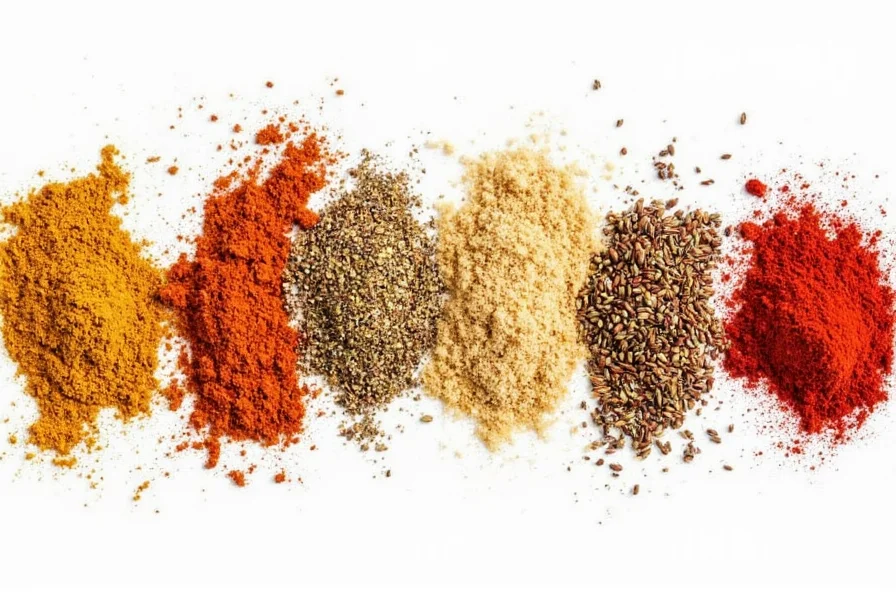
Nutmeg offers a softer, sweeter note with earthy undertones. It shines in custards, cakes, and sauces. According to culinary experts, it doesn't replicate the full complexity of allspice by itself but pairs perfectly with cinnamon. Use ½ tsp per 1 tsp allspice for balanced flavor.
3. Cloves
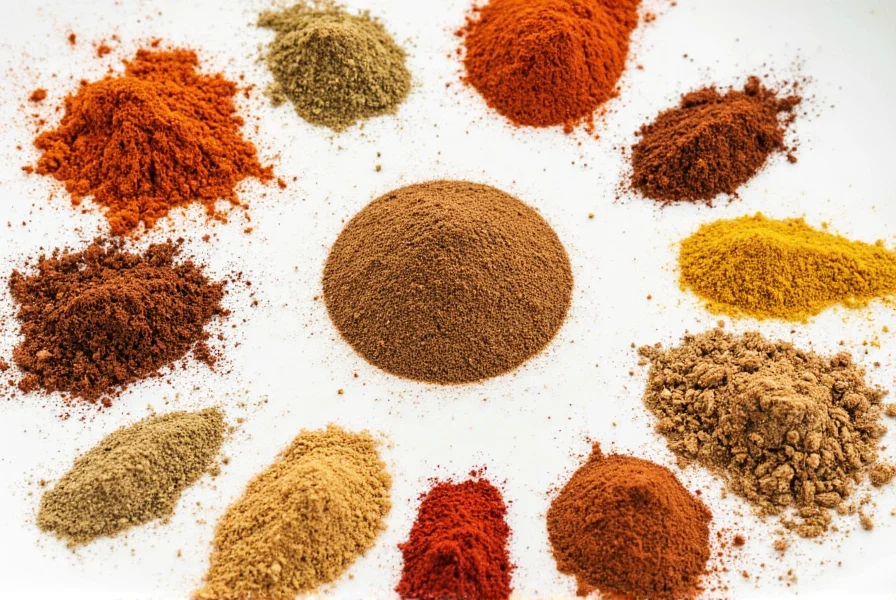
Cloves pack a strong, spicy punch with floral notes. Use sparingly—they can easily overpower a dish. The American Spice Trade Association recommends using only ¼ tsp per 1 tsp allspice for savory dishes and ⅛ tsp for delicate baked goods.
4. Mixed Spice (British "Mixed Spice")
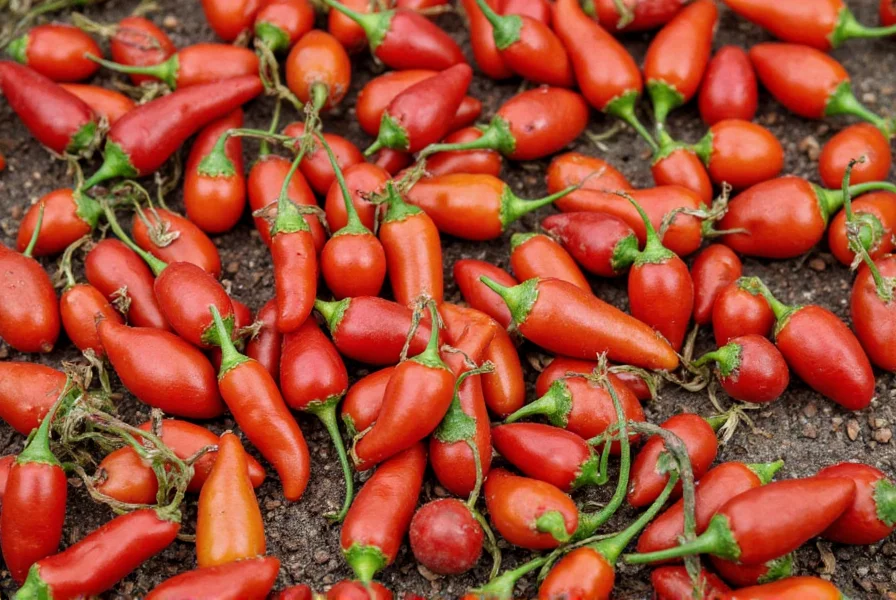
This pre-mixed blend often includes cinnamon, coriander, caraway, nutmeg, and cloves. Professional chefs consider it an easy shortcut to recreate allspice's depth in recipes like gingerbread or meat rubs. Use a direct 1:1 substitution for best results.
5. Apple Pie Spice
A ready-made mix usually containing cinnamon, nutmeg, allspice, and sometimes ginger. The Culinary Institute of America recommends it for dessert lovers who need a quick fix without measuring individual spices. Use 1:1 substitution for pies and tarts only.
6. Garam Masala
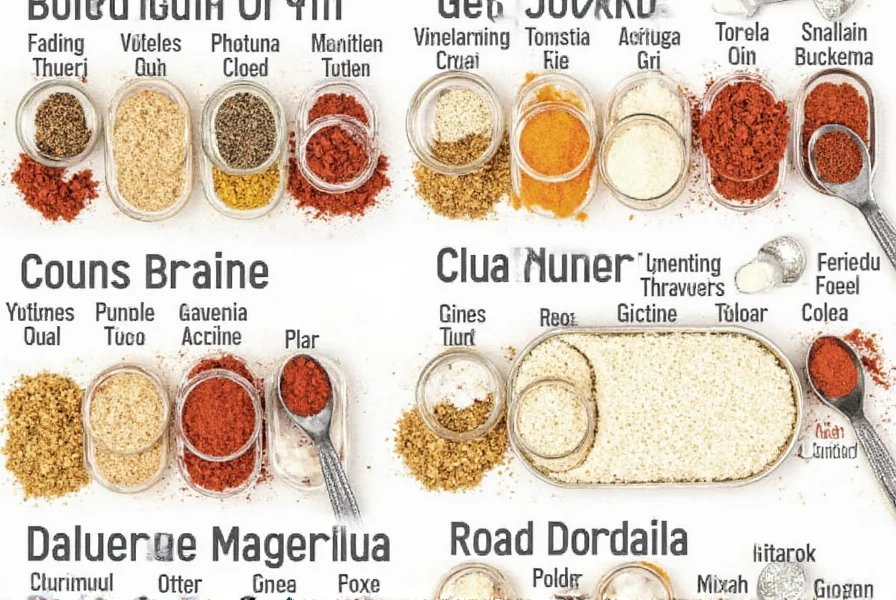
This Indian spice blend contains warming spices like cardamom, cumin, coriander, and black pepper. While not a direct match, it adds complexity to dishes needing a spicy kick. Professional chefs recommend using ¾ tsp per 1 tsp allspice to avoid overpowering the dish with its cardamom notes.
Comparison Table: Allspice Alternatives at a Glance
| Substitute | Flavor Profile | Best For | Pro Tip |
|---|---|---|---|
| Cinnamon | Warm, Sweet | Desserts, Breads | Use ½ tsp per 1 tsp allspice |
| Nutmeg | Earthy, Mildly Sweet | Custards, Sauces | Pair with cinnamon for balance |
| Cloves | Spicy, Intense | Mulled Drinks, Pickling | Use only ¼ tsp per 1 tsp allspice |
| Mixed Spice | Well-balanced Warmth | Baking, Roasts | Direct 1:1 substitution |
| Apple Pie Spice | Sweet & Warming | Pies, Tarts | Great for desserts only |
| Garam Masala | Complex, Earthy | Curries, Stews | Add near end of cooking |
Buying Guide for Allspice Alternatives
When choosing a substitute for allspice berries, consider not only flavor but also quality, usage, and storage life. Here's how to make smart buys based on professional chef recommendations:
Cinnamon
Features: Available in stick or powder form.
Advantages: Versatile, affordable, widely available.
Use Cases: Baked goods, beverages, oatmeal.
Target Audience: Home bakers, everyday cooks.
Occasions: Anytime, anywhere.
Nutmeg
Features: Best in whole form for freshness.
Advantages: Lasts longer when whole; better flavor when freshly grated.
Use Cases: Custards, béchamel, eggnog.
Target Audience: Gourmet chefs, comfort food lovers.
Occasions: Holiday baking, fall soups.
Cloves
Features: Strong aroma, long shelf life.
Advantages: Used in tiny amounts; economical.
Use Cases: Ham glazes, chai, spiced wine.
Target Audience: Seasonal bakers, beverage enthusiasts.
Occasions: Winter holidays, festive drinks.
Mixed Spice
Features: Pre-mixed for convenience.
Advantages: Saves time; balanced flavor.
Use Cases: British-style puddings, cakes, meat rubs.
Target Audience: International cuisine fans, busy cooks.
Occasions: Weekend baking, themed dinners.
Apple Pie Spice
Features: Designed specifically for desserts.
Advantages: No guesswork needed; flavorful right out the jar.
Use Cases: Pies, muffins, pancakes.
Target Audience: Dessert lovers, beginner bakers.
Occasions: Fall baking, family gatherings.
Garam Masala
Features: Varies by brand and region.
Advantages: Rich flavor without effort; perfect for layering spices.
Use Cases: Curries, lentil dishes, grilled meats.
Target Audience: Global cuisine explorers, home chefs.
Occasions: Weeknight curries, dinner parties.
How to Use These Alternatives Like a Pro
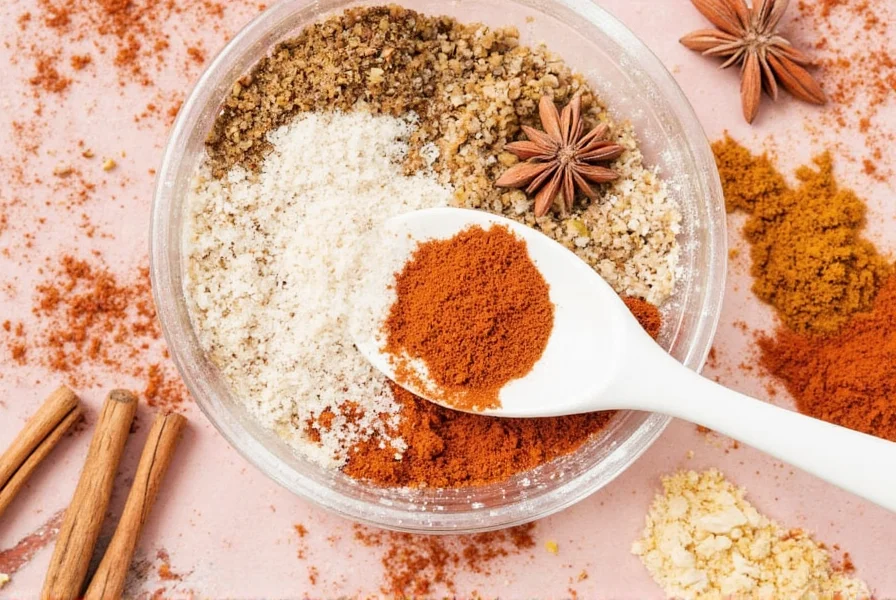
Just swapping one spice for another isn't enough to get the most out of your meal. Based on expert advice from culinary professionals, here are some insider tips to help you nail the flavor every time:
- Bake Smart: When substituting in baked goods, mix cinnamon + nutmeg + a pinch of cloves for a homemade allspice blend.
- Taste as You Go: Especially with strong spices like cloves and garam masala. Add a little, then adjust.
- Toasting Makes a Difference: Lightly toast ground spices before adding them to deepen the flavor profile.
- Think About Texture: Whole allspice berries release flavor slowly. If using powders, reduce the amount by half.
- Layer Flavors: Combine two or three alternatives to create a more rounded flavor similar to allspice berries.
Frequently Asked Questions
Can I use ground allspice instead of whole berries in a 1:1 ratio?
Yes, ground allspice can substitute whole berries at a 1:1 ratio by volume according to the American Spice Trade Association. However, whole berries retain flavor longer—grind them fresh just before use for the strongest taste. For long-cooked dishes like stews, whole berries are preferable as they release flavor gradually.
What's the best allspice substitute for savory dishes like jerk chicken?
For savory applications, professional chefs recommend combining ½ tsp cinnamon + ¼ tsp nutmeg + ⅛ tsp cloves per teaspoon of allspice. Garam masala also works well in meat dishes—use ¾ tsp per 1 tsp allspice to avoid overpowering the dish with its cardamom notes.
Why does my substitute taste too strong or bitter?
Cloves and nutmeg can become bitter if overused. According to the Culinary Institute of America, cloves should never exceed ¼ tsp per teaspoon of allspice. Always toast ground spices lightly before use, and add substitutes gradually—taste after each addition. Bitterness often comes from burnt spices or excessive quantities.
Can I make a long-term allspice replacement blend?
Absolutely. Mix 2 tbsp cinnamon + 1 tbsp nutmeg + 1 tsp ground cloves + 1 tsp black pepper. Store in an airtight container away from light. This blend mimics allspice perfectly and lasts 6 months. Shake well before each use since ingredients settle differently.
Are there health differences between allspice and its substitutes?
Allspice contains eugenol (like cloves) which aids digestion, while cinnamon regulates blood sugar. Nutmeg in large doses can be toxic—never exceed 1 tsp daily. For most cooking purposes, substitutes are equally safe when used in typical recipe quantities (under 1 tsp per serving) according to the American Spice Trade Association.
Conclusion: Spice Up Your Kitchen Without Allspice
You don't need allspice berries to bring warmth and depth to your cooking. Whether you're whipping up a batch of gingerbread or simmering a hearty stew, the right substitute can save your recipe—and even introduce exciting new flavors.
From cinnamon's sweet embrace to clove's fiery bite and garam masala's aromatic charm, there's a substitute that fits your style and dish perfectly. Don't be afraid to play with combinations, experiment with ratios, and trust your taste buds.
Now go ahead—get creative with your spice rack and never let missing allspice berries ruin your culinary dreams again!










 浙公网安备
33010002000092号
浙公网安备
33010002000092号 浙B2-20120091-4
浙B2-20120091-4